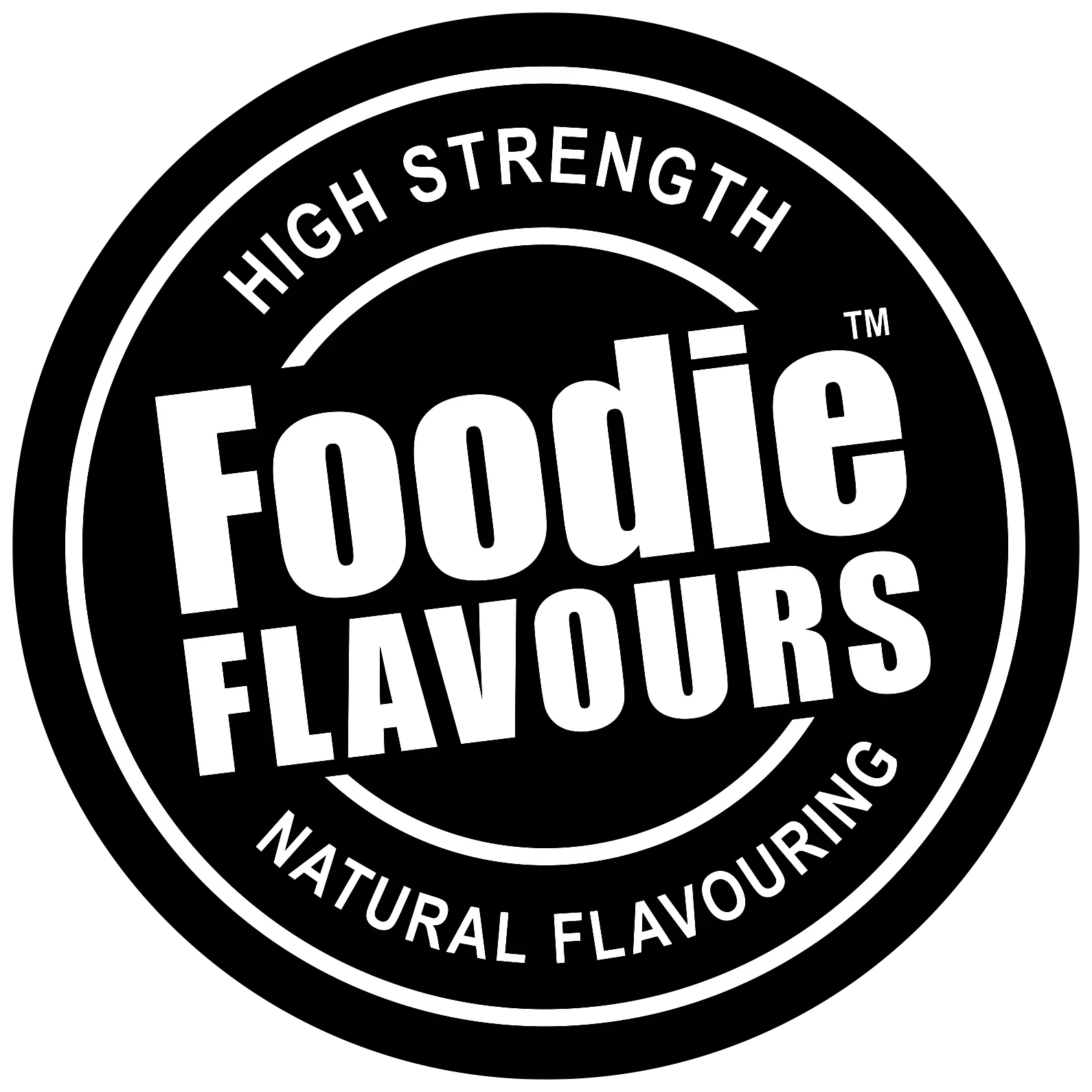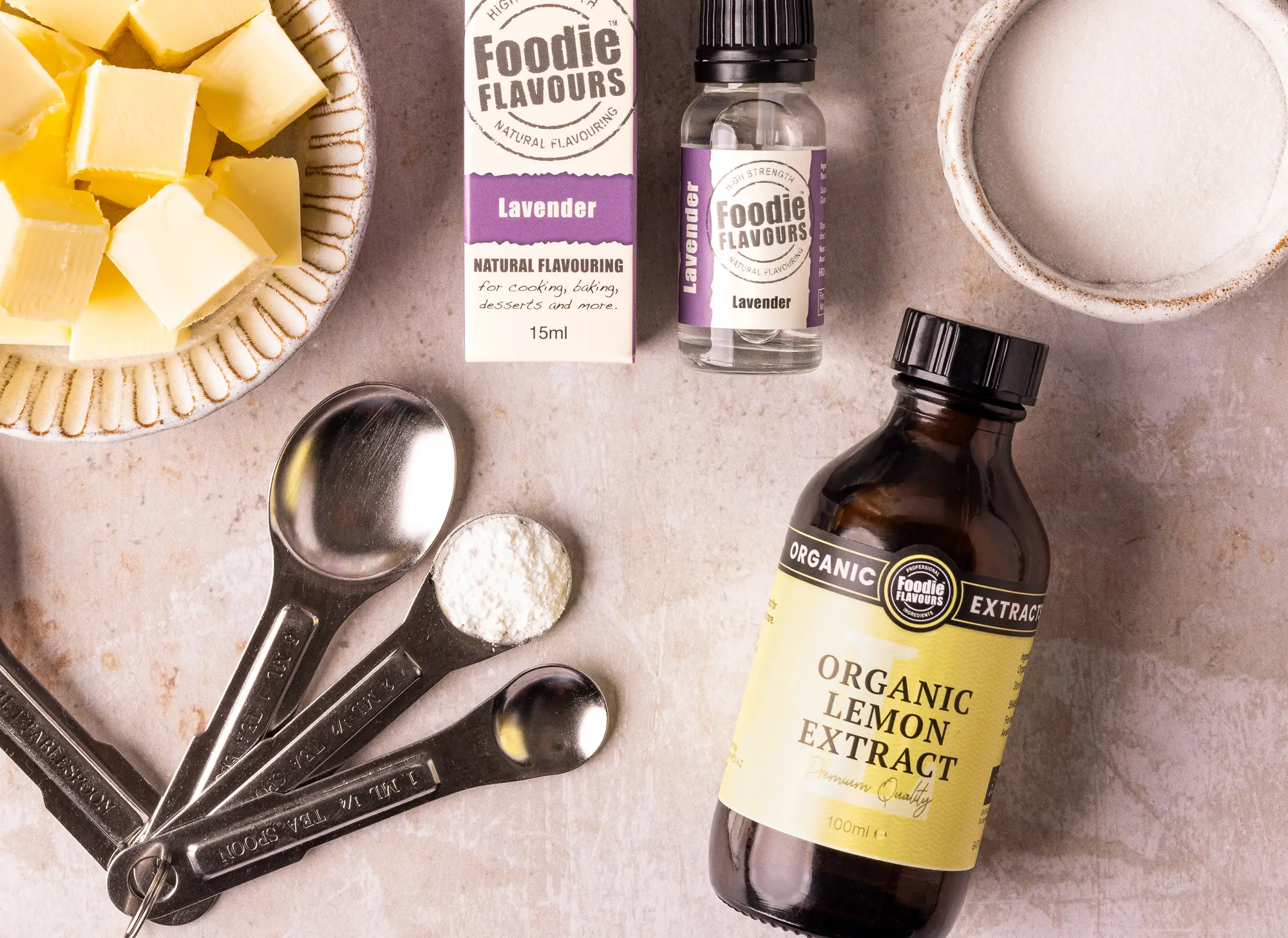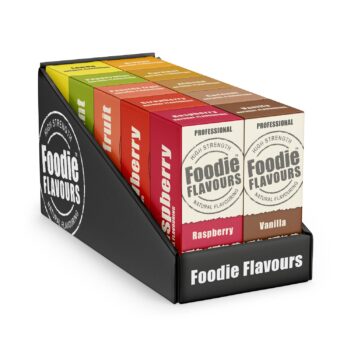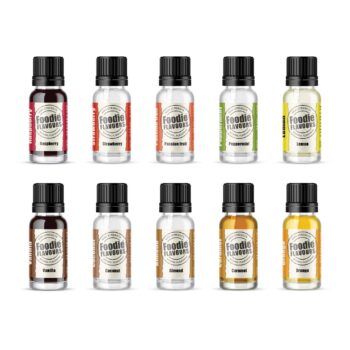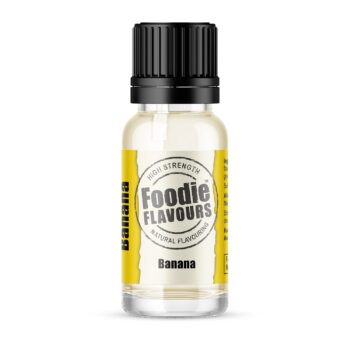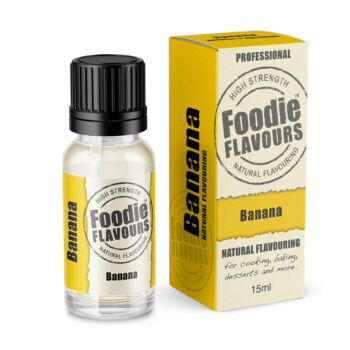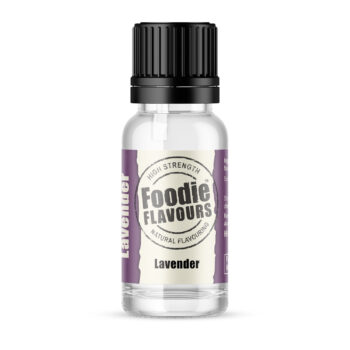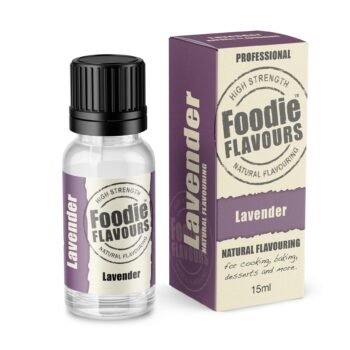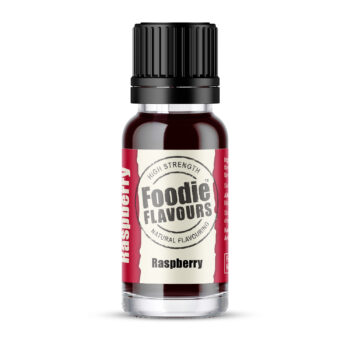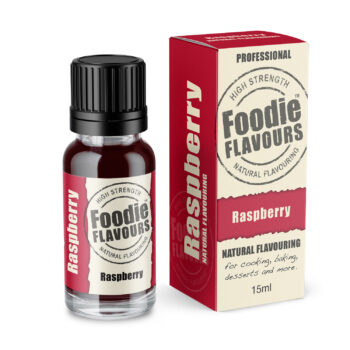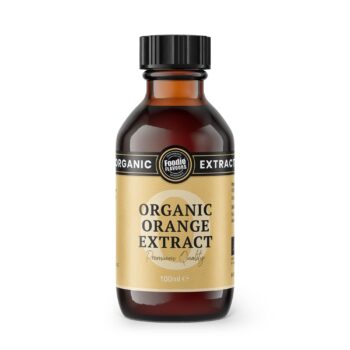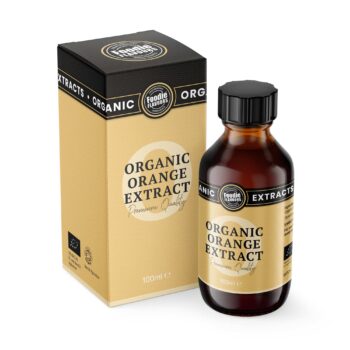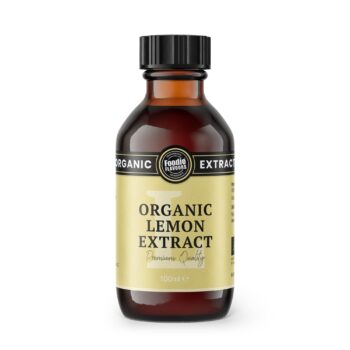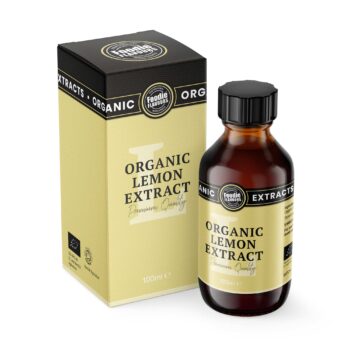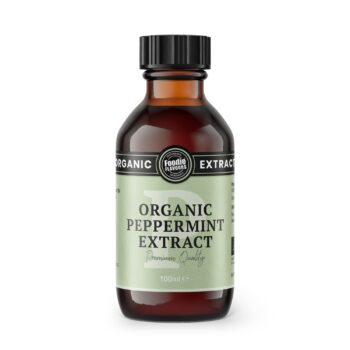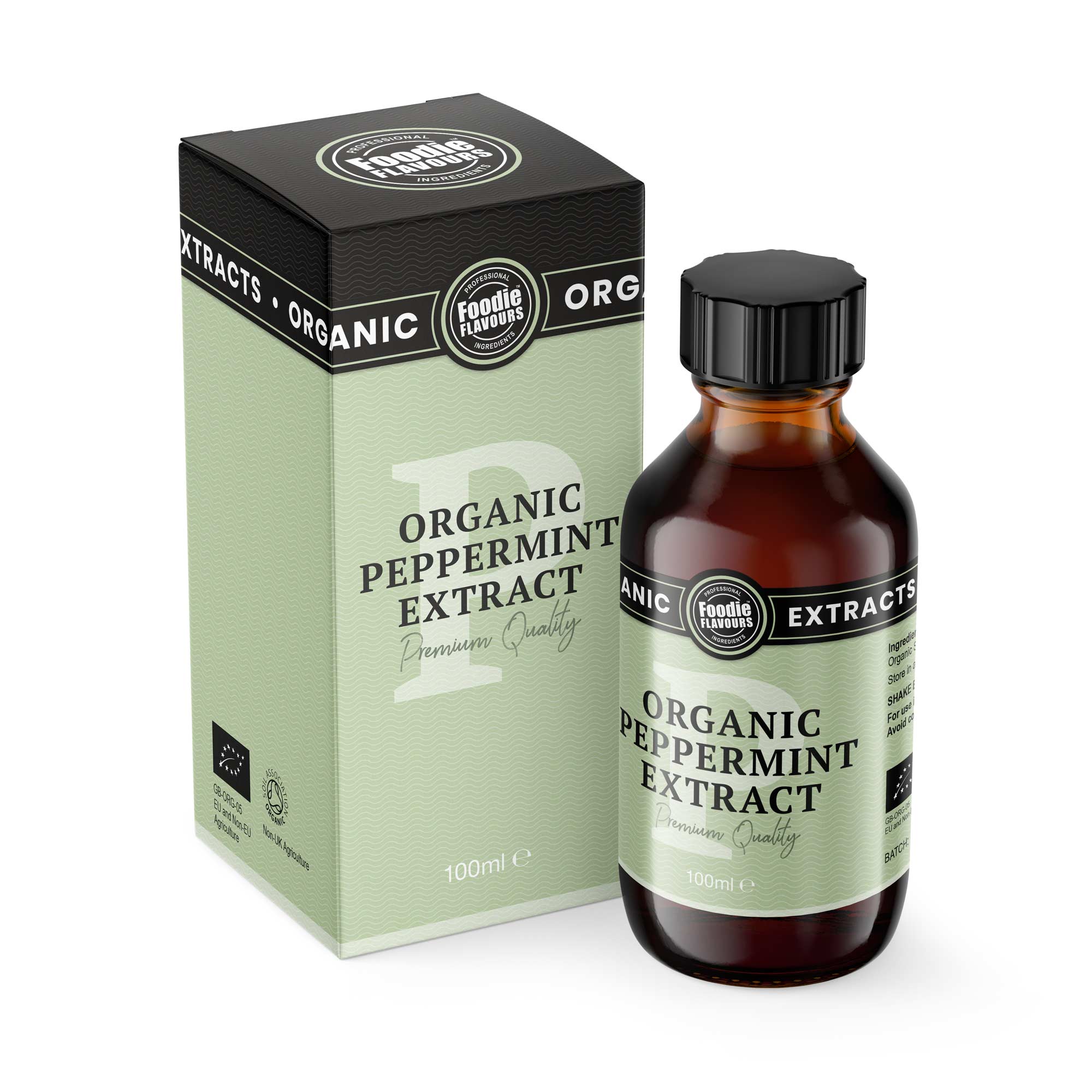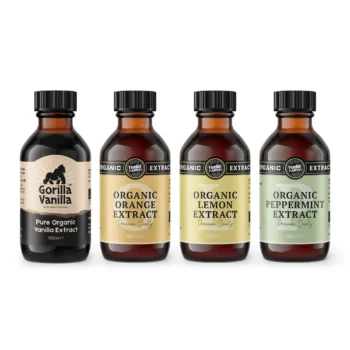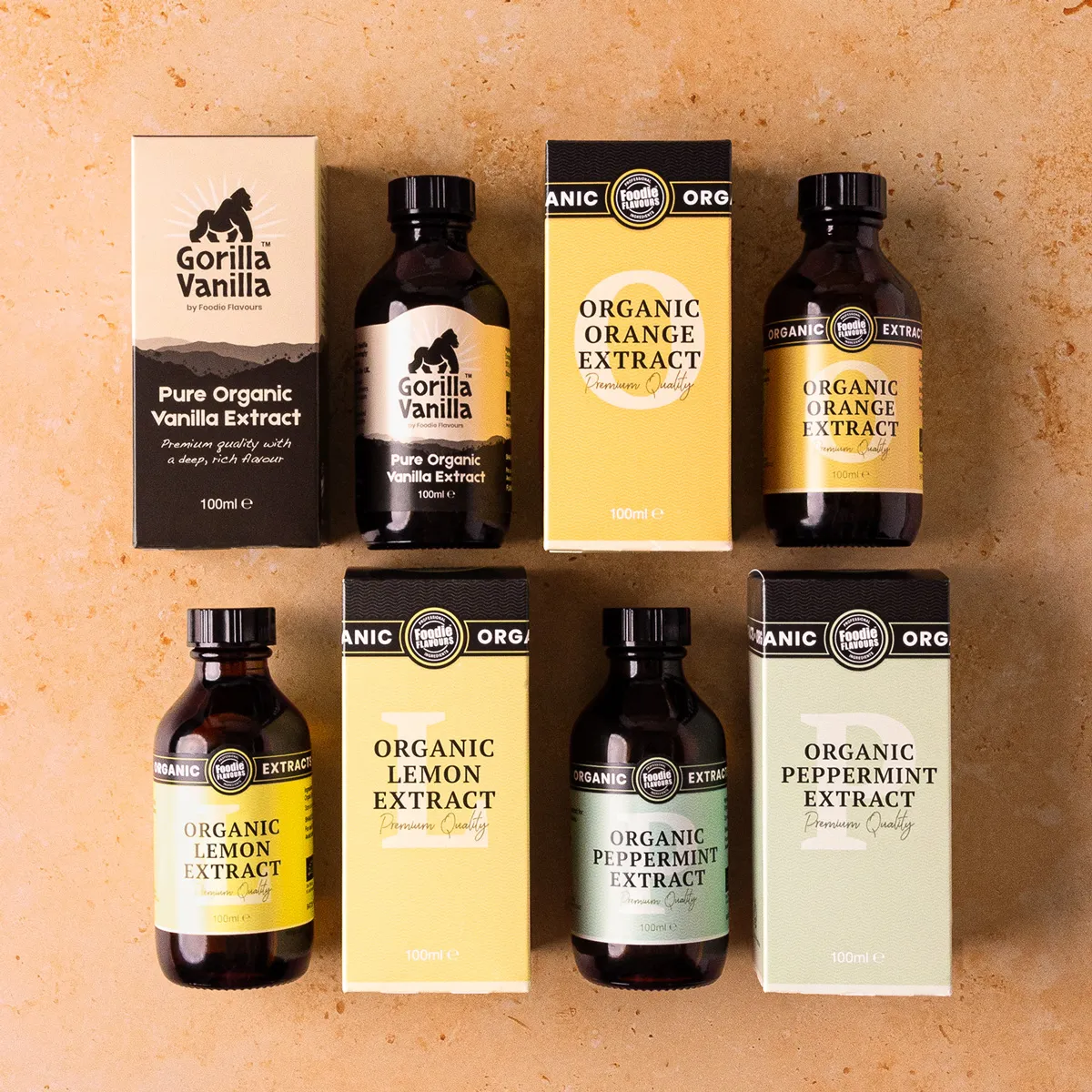The various terms used for food flavourings can be confusing. From a labelling point of view a food product may list ‘flavourings’ or ’natural flavourings’ in its ingredients. ‘Flavourings’ can mean artificial or natural flavourings, but is mostly used to mean ‘artificial flavourings’. While ’natural flavourings’ should mean that the flavouring is made from natural substances only.
So, what about the terms ‘Flavouring’, ‘Extract’ and ‘Essence’?
Flavouring
A natural flavouring is made from various extracts or natural substances, which when mixed in a particular formula give the required taste. A flavouring is typically stronger than an Extract.
Extract
Extracts are made by placing a raw material such as vanilla beans in alcohol and water – this extracts elements from the raw material into the liquid mixture to give you ‘vanilla extract’. Nothing else should be added to an extract for it to be a pure extract.
Essence
The term ‘essence’ really comes from the early years of flavour manufacturing and was used to describe a ‘culinary strength’ flavouring, such as typically sold in a shop for home cooking – so an essence is really just another term for a flavouring.
So, in summary if you are buying natural flavouring products for baking you would choose either an ‘extract’ or a ‘natural flavouring’. You may find that a quality natural flavouring may be more bake stable than an extract, since alcohol based extracts tends to flash-off with heat to some degree during baking.
At Foodie Flavours we label all our flavouring products accurately so you know what you are getting. All of the flavours and extract available on FoodieFlavours.com are Natural.
Foodie Flavours provide professional quality, high strength, natural flavouring to the home baker and food manufacturers.
